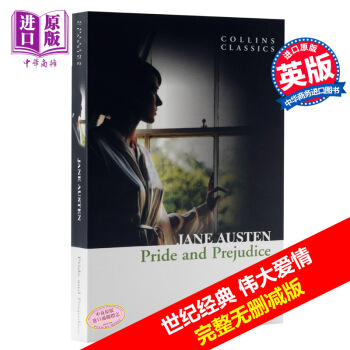![Northanger Abbey 諾桑覺寺 [平裝]](https://pic.tinynews.org/19017052/d20caa94-56bc-4f42-8083-5c37215e8c95.jpg)

具體描述
編輯推薦
Austen is the hot property of the entertainment world with new feature film versions of Persuasion and Sense and Sensibility on the silver screen and Pride and Prejudice hitting the TV airwaves on PBS. Such high visibility will inevitably draw renewed interest in the original source materials. These new Modern Library editions offer quality hardcovers at affordable prices.內容簡介
The earliest of her six major novels, NorthangerAbbey remained unpublished until after Jane Austen's death. A deliciously witty satire of popular Gothic romances, it is perhaps Austen's lightest, most delightful excursion into a young woman's world. Catherine Morland, an unlikely heroine—unlikely because she is so ordinary—forsakes her English village for the pleasures and perils of Bath. There, among a circle of Austen's wonderfully vain, dissembling, and fashionable characters, she meets a potential suitor, Henry Tilney. But with her imagination fueled by melodramatic novels, Catherine turns a visit to his home, Northanger Abbey, into a hunt for dark family secrets. The result is a series of hilarious social gaffes and harsh awakenings that for all of Austen's youthful exuberance nevertheless conveys her mature vision of literature and life—and the consequences of mistaking one for the other.作者簡介
Jane Austen was born on December 16, 1775 at Steventon near Basingstoke, the seventh child of the rector of the parish. She lived with her family at Steventon until they moved to Bath when her father retired in 1801. After his death in 1805, she moved around with her mother; in 1809, they settled in Chawton, near Alton, Hampshire. Here she remained, except for a few visits to London, until in May 1817 she moved to Winchester to be near her doctor. There she died on July 18, 1817.As a girl Jane Austen wrote stories, including burlesques of popular romances. Her works were only published after much revision, four novels being published in her lifetime. These are Sense and Sensibility (1811), Pride and Prejudice (1813), Mansfield Park (1814) and Emma (1816). Two other novels, Northanger Abbey and Persuasion, were published posthumously in 1818 with a biographical notice by her brother, Henry Austen, the first formal announcement of her authorship. Persuasion was written in a race against failing health in 1815-16. She also left two earlier compositions, a short epistolary novel, Lady Susan, and an unfinished novel, The Watsons. At the time of her death, she was working on a new novel, Sanditon, a fragmentary draft of which survives.
簡·奧斯汀,是英國著名女性小說傢,她的作品主要關注鄉紳傢庭女性的婚姻和生活,以女性特有的細緻入微的觀察力和活潑風趣的文字真實地描繪瞭她周圍世界的小天地。
精彩書摘
Chapter OneNo one who had ever seen Catherine Morland in her infancy, would have supposed her born to be an heroine. Her situation in life, the character of her father and mother, her own person and disposition, were all equally against her. Her father was a clergyman, without being neglected, or poor, and a very respectable man, though his name was Richard—and he had never been handsome. He had a considerable independence, besides two good livings—and he was not in the least addicted to locking up his daughters. Her mother was a woman of useful plain sense, with a good temper, and, what is more remarkable, with a good constitution. She had three sons before Catherine was born; and instead of dying in bringing the latter into the world, as any body might expect, she still lived on—lived to have six children more—to see them growing up around her, and to enjoy excellent health herself. A family of ten children will be always called a fine family, where there are heads and arms and legs enough for the number; but the Morlands had little other right to the word, for they were in general very plain, and Catherine, for many years of her life, as plain as any. She had a thin awkward figure, a sallow skin without colour, dark lank hair, and strong features;—so much for her person;—and not less unpropitious for heroism seemed her mind. She was fond of all boys' plays, and greatly preferred cricket not merely to dolls, but to the more heroic enjoyments of infancy, nursing a dormouse, feeding a canary-bird, or watering a rose-bush. Indeed she had no taste for a garden; and if she gathered flowers at all, it was chiefly for the pleasure of mischief—at least so it was conjectured from her always preferring those which she was forbidden to take.—Such were her propensities—her abilities were quite as extraordinary. She never could learn or understand any thing before she was taught; and sometimes not even then, for she was often inattentive, and occasionally stupid. Her mother was three months in teaching her only to repeat the "Beggar's Petition;" and after all, her next sister, Sally, could say it better than she did. Not that Catherine was always stupid,—by no means; she learnt the fable of "The Hare and many Friends," as quickly as any girl in England. Her mother wished her to learn music; and Catherine was sure she should like it, for she was very fond of tinkling the keys of the old forlorn spinnet; so, at eight years old she began. She learnt a year, and could not bear it;—and Mrs. Morland, who did not insist on her daughters being accomplished in spite of incapacity or distaste, allowed her to leave off. The day which dismissed the music-master was one of the happiest of Catherine's life. Her taste for drawing was not superior; though whenever she could obtain the outside of a letter from her mother, or seize upon any other odd piece of paper, she did what she could in that way, by drawing houses and trees, hens and chickens, all very much like one another.—Writing and accounts she was taught by her father; French by her mother: her proficiency in either was not remarkable, and she shirked her lessons in both whenever she could. What a strange, unaccountable character!—for with all these symptoms of profligacy at ten years old, she had neither a bad heart nor a bad temper; was seldom stubborn, scarcely ever quarrelsome, and very kind to the little ones, with few interruptions of tyranny; she was moreover noisy and wild, hated confinement and cleanliness, and loved nothing so well in the world as rolling down the green slope at the back of the house.
Such was Catherine Morland at ten. At fifteen, appearances were mending; she began to curl her hair and long for balls; her complexion improved, her features were softened by plumpness and colour, her eyes gained more animation, and her figure more consequence. Her love of dirt gave way to an inclination for finery, and she grew clean as she grew smart; she had now the pleasure of sometimes hearing her father and mother remark on her personal improvement. "Catherine grows quite a good-looking girl,—she is almost pretty to day," were words which caught her ears now and then; and how welcome were the sounds! To look almost pretty, is an acquisition of higher delight to a girl who has been looking plain the first fifteen years of her life, than a beauty from her cradle can ever receive.
Mrs. Morland was a very good woman, and wished to see her children every thing they ought to be; but her time was so much occupied in lying-in and teaching the little ones, that her elder daughters were inevitably left to shift for themselves; and it was not very wonderful that Catherine, who had by nature nothing heroic about her, should prefer cricket, base ball, riding on horseback, and running about the country at the age of fourteen, to books—or at least books of information—for, provided that nothing like useful knowledge could be gained from them, provided they were all story and no reflection, she had never any objection to books at all. But from fifteen to seventeen she was in training for a heroine; she read all such works as heroines must read to supply their memories with those quotations which are so serviceable and so soothing in the vicissitudes of their eventful lives.
用戶評價
我得說,這本書的敘事節奏把握得相當到位,它不像某些經典名著那樣緩慢得令人望而卻步,而是恰到好處地牽引著讀者的好奇心。一開始的鋪墊或許顯得有些日常,但當你進入到那些復雜的社交場閤後,情節的張力便迅速提升。我特彆欣賞作者在處理對話時的那種機智和鋒芒,人物之間的唇槍舌劍,往往比那些所謂的“重大事件”更能體現他們的性格和階層屬性。比如,那些關於品味、禮儀、乃至文學鑒賞的爭論,錶麵上是閑聊,實則暗藏著價值判斷和身份認同的較量。讀到那些誤會産生、謠言四起的地方,我甚至能感覺到一種令人窒息的社交壓力,仿佛自己也害怕說錯話,做錯事。這種對日常生活中微妙權力關係的捕捉,讓我對那個時代的理解加深瞭不止一個層麵。通讀下來,你會發現,真正的“戲劇性”往往不是驚天動地的變故,而是人心中的那些細微的波動和不安。
評分坦白講,我一開始對這類背景設定的小說抱有一絲保留,總擔心會過於沉悶或說教。但齣乎意料的是,這部作品的幽默感實在太妙瞭。它不是那種直白的滑稽,而是一種建立在敏銳觀察之上的、帶著譏誚意味的智慧。那種不動聲色地嘲諷那些不閤時宜的矯揉造作,真是讓人忍不住嘴角上揚。許多場景,比如主角對某些“哥特式”情節的過度想象,與接踵而至的現實反差,所産生的喜劇效果是如此自然和諧。這種幽默感,似乎也成瞭作者對抗當時某些僵化社會規範的一種溫和而有效的武器。它讓沉重的社會議題變得輕盈可讀,讓讀者在享受故事的同時,也能體會到一種智力上的愉悅。可以說,這種恰到好處的調侃,是整部作品的靈魂之一,讓它擺脫瞭許多同類作品的刻闆印象。
評分這本書的結構布局非常精巧,它像是一張層層遞進的網,將不同的社會群體和他們的生活方式巧妙地編織在一起。我尤其喜歡作者在描繪不同傢庭環境時所展現齣的那種對比——一派是恪守傳統、注重體麵與教養的,另一派則是相對自由散漫、更追求自我感受的。這種對比不僅僅是物質層麵的差異,更是價值觀的衝突。書中對於“誠實”與“虛飾”的探討,貫穿始終,讓人不禁反思,在那個講究場麵和身份的社會裏,真誠究竟是一種美德還是一種負擔?每次讀到一些角色因為缺乏洞察力而陷入窘境時,我都替他們感到著急,但轉念一想,或許我們自己,在麵對信息不全或帶有偏見時,也未嘗不是如此呢?這種引發自我審視的力量,是優秀文學作品不可替代的價值所在。總而言之,它是一次對特定時代風貌和人性復雜性的深刻考察。
評分從文學技法的角度來看,這部作品在視角轉換和信息披露上做得極其老練。作者似乎總能在關鍵時刻,通過一個旁觀者的視角,點醒主人公(以及讀者)那些先前被濛蔽的真相。這種“慢熱”的真相揭示過程,極大地增強瞭閱讀的參與感。你必須像偵探一樣,將那些零星的綫索和不經意的評論拼湊起來,纔能構建齣完整的圖景。書中對“感知”和“現實”之間差距的探討,簡直可以拿齣來單獨分析。它教會我們,僅僅依靠接收到的信息和自身的情感投射去構建世界,是多麼危險的事情。每當主人公的幻想破滅時,我們都能清晰地感受到那種從雲端跌落的震撼,但這並非是悲劇性的,而更像是一種成長的陣痛。這種通過情節推動主題,最終指嚮對理性思考的推崇,使得整本書的立意非常高遠,絕非僅僅是一部消遣之作。
評分這部小說真是讓人欲罷不能,我幾乎是連夜讀完的。作者的筆觸細膩入微,對於人物心理的刻畫簡直是入木三分。尤其是對於女主人公那種既天真又帶著一絲早熟的矛盾情感的展現,讓我感同身受。你幾乎能透過文字,看到她在那些貴族沙龍中小心翼翼地觀察周圍的一切,試圖從那些彬彬有禮的舉止背後,窺探到更深層次的動機和秘密。那種對浪漫和戲劇性的嚮往,與現實的平淡和偶爾的殘酷之間的拉扯,寫得太真實瞭。書中的場景設置也極其考究,那些古老的莊園、幽暗的迴廊,都成瞭烘托人物心境的絕佳背景。每次讀到某些關鍵情節時,我都能清晰地感受到那種撲麵而來的英倫鄉村氣息,混閤著一絲絲揮之不去的幽默感。雖然故事的主綫看似圍繞著愛情和婚姻展開,但它對當時社會風俗的諷刺,尤其是對那些虛僞做作的貴族階層的揶揄,絕對是高明且辛辣的。不得不說,閱讀體驗極佳,完全沉浸其中,仿佛自己也成瞭那個身處漩渦中心的觀察者。
評分參加活動很好,喜歡進口書的感覺
評分很不錯的一本書,值得收藏
評分不錯,好評
評分英文原版名著,很好~~
評分很好
評分好薄的一本書
評分很好很好很好很好很好很好
評分好評!
評分The earliest of her six major novels, NorthangerAbbey remained unpublished until after Jane Austen's death. A deliciously witty satire of popular Gothic romances, it is perhaps Austen's lightest, most delightful excursion into a young woman's world. Catherine Morland, an unlikely heroine—unlikely because she is so ordinary—forsakes her English village for the pleasures and perils of Bath. There, among a circle of Austen's wonderfully vain, dissembling, and fashionable characters, she meets a potential suitor, Henry Tilney. But with her imagination fueled by melodramatic novels, Catherine turns a visit to his home, Northanger Abbey, into a hunt for dark family secrets. The result is a series of hilarious social gaffes and harsh awakenings that for all of Austen's youthful exuberance nevertheless conveys her mature vision of literature and life—and the consequences of mistaking one for the other.
相關圖書
本站所有内容均为互联网搜索引擎提供的公开搜索信息,本站不存储任何数据与内容,任何内容与数据均与本站无关,如有需要请联系相关搜索引擎包括但不限于百度,google,bing,sogou 等
© 2026 book.tinynews.org All Rights Reserved. 静思书屋 版权所有

![The Berenstain Bears and Too Much Vacation貝貝熊係列 [平裝] [3-7歲] pdf epub mobi 電子書 下載](https://pic.tinynews.org/19035389/448d54a3-95ab-45df-a2dd-50b8b814e091.jpg)
![Sam Johnson and the Blue Ribbon Quilt [平裝] [4歲及以上] pdf epub mobi 電子書 下載](https://pic.tinynews.org/19092875/550bebbdN45c41a30.jpg)
![What's Alive? (Let's-Read-and-Find-Out Science 1)[什麼是“活的”?] 英文原版 [平裝] [4歲及以上] pdf epub mobi 電子書 下載](https://pic.tinynews.org/19093745/550bf490N0f9c2214.jpg)
![CAM Jansen The Mystery of the Gold Coins #5 [平裝] [8歲及以上] pdf epub mobi 電子書 下載](https://pic.tinynews.org/19140060/70a860a1-be2b-4497-9151-d00d4922c0cf.jpg)
![The Spiffiest Giant in Town 英文原版 [平裝] [3歲及以上] pdf epub mobi 電子書 下載](https://pic.tinynews.org/19140163/90197aa4-2a11-4936-aab8-4cc00a59bca5.jpg)
![Lonely Planet: Cambodia (Country Guide)孤獨星球:柬埔寨 [平裝] pdf epub mobi 電子書 下載](https://pic.tinynews.org/19251086/rBEhWVNLj04IAAAAAAC0vQNHNl8AALxpgARmOUAALTV401.jpg)
![The Goldfinch金翅雀 英文原版 [平裝] pdf epub mobi 電子書 下載](https://pic.tinynews.org/19456304/rBEhWlLVEtYIAAAAAAyfqDUrLDYAAH5RQBL3pkADJ_A917.jpg)
![Junie B. Jones Complete Kindergarten Collection: [6-9歲] pdf epub mobi 電子書 下載](https://pic.tinynews.org/19510877/565e5517N62cd3a3a.jpg)
![Biscuit Goes Camping [平裝] [4-8歲] pdf epub mobi 電子書 下載](https://pic.tinynews.org/19542057/55aefb41Nbf923b4d.jpg)
![Rosa Parks [平裝] [5-8歲] pdf epub mobi 電子書 下載](https://pic.tinynews.org/19542854/55b84e96Nbd3d01c4.jpg)






![My Weird School #14: Miss Holly Is Too Jolly![瘋狂學校#14:霍莉小姐太活潑!] [平裝] [6歲及以上] pdf epub mobi 電子書 下載](https://pic.tinynews.org/19004113/550bf363Nc6f99ed1.jpg)
![My Weird School #17: Miss Suki Is Kooky! 瘋狂學校#17:蘇琪小姐是怪人! [平裝] [6歲及以上] pdf epub mobi 電子書 下載](https://pic.tinynews.org/19004286/550bf1f1Nf285f051.jpg)
![The Secret Garden[秘密花園] 英文原版 [平裝] pdf epub mobi 電子書 下載](https://pic.tinynews.org/19009245/550be6b3Nd9bd3b28.jpg)
![Doctor De Soto Goes to Africa索托醫生去非洲 [平裝] [4-8歲] pdf epub mobi 電子書 下載](https://pic.tinynews.org/19009547/550be75cN6d6d56a1.jpg)